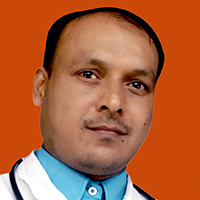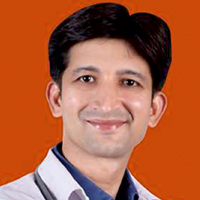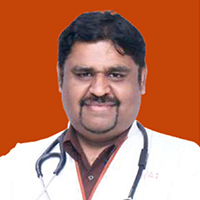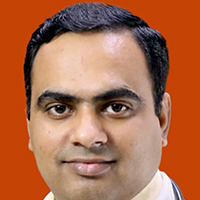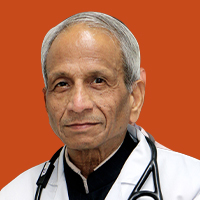

Successful Treatments
Clinics
Doctors
What are Palpitations?
Palpitations are the feeling that one's heart is beating too fast or irregularly. They can be described as pounding or fluttering in the chest, or the heart is beating too fast or forcefully. Although palpitations often turn out to be harmless, sometimes they are an indication of an illness. It can occur under any conditions; at times of physical activity, stress, or just when at rest. Knowing what palpitations mean may be necessary because they could present with an increased heart rate or an irregular heartbeat.
Symptoms
Fluttering Sensation
Most people experience a fluttering feeling in the chest. It is as if some butterfly were flapping its wings inside their chest. This fluttering feeling occurs when the heart also beats irregularly or rapidly, giving it awareness of the rhythm in which the heart is beating. It can be quite frightening when one feels as though the heart is skipping a beat or otherwise beating irregularly.
Pounding in the Chest
It can also be the case that thumping or pounding is present, making it feel like the heart is pounding more vigorously than normal. Such a case of physical exercise or heightened emotional tension can indeed make this symptom very pronounced, creating discomfort and making one acutely aware of heart activity.
Shortness of Breath
Such people may feel unable to breathe properly. Shortness of breath varies from just feeling unable to get enough air to almost a choking feeling. It often co-occurs with palpitations but could also be an anxiety and panic symptom.
Dizziness or Lightheadedness
Dizziness or lightheadedness may present alongside palpitations. This could also be accompanied by an almost fainted or unbalanced sensation. The danger is especially dire and may even suggest poor blood flow to the brain, a more critical symptom when other symptoms such as chest pain occur at the same time.
Anxiety or Panic
Normally, anxiety or even panic is strongly associated with palpitations in the minds of people. The vicious cycle may often set in as anxiety promotes more palpitations. Fear and dread may be so intense that full-blown panic attacks can occur in response to the sensation of palpitations.
Common Causes of Palpitations
Several factors can contribute to heart palpitations, including:
Stress and Anxiety: The most common cause of palpitations is emotional stress, anxiety, or panic disorders. When one experiences emotional stress, anxiety, or other panic disorders, the body's autonomic nervous system will release the hormone adrenaline, making the heart pump more forcefully and increasing the heartbeat. Hence, at this state of arousal, palpitations can persist, mostly among the anxious.
Caffeine and Stimulants: Stimulants including caffeine, nicotine, and prescription medications can cause an abnormal working of the heart. Many overuse caffeine through coffee, tea, energy drinks, or chocolate. In very large quantities, they stimulate the heart and produce palpitations. Nicotine from tobacco also causes tachycardia and will sometimes produce arrhythmias.
Hormonal Changes: Humans experience major hormonal fluctuations throughout their lives, especially at such periods as pregnancy, menstruation, and climacterium. Pregnant women are likely to suffer from palpitations since the estrogen levels surge significantly, and progesterone levels also rise five to ten times. They alter the blood volume and heart rate proportionally and produce palpitation. Likewise, the fluctuating hormone level in females during their menstrual cycle or during climacterium might lead to palpitations in them.
Medical Conditions: Some medical conditions cause palpitations. Hyperthyroidism is an example condition where there is unwanted activity of the thyroid gland, which speeds up the metabolism as well as the heart rate. Other medical conditions include anaemia or a relatively low count of red blood cells, heart diseases (atrial fibrillation or arrhythmias), or imbalances of electrolytes in one's system that can contribute to the palpitate feeling.
When to Worry About Heart Palpitations
While occasional palpitations are usually harmless, you should seek medical attention if you experience:
- Persistent or frequent palpitations.
- Palpitations accompanied by chest pain.
- Dizziness or fainting spells.
- Shortness of breath.
- Palpitations occurring during sleep or while lying down.
How to Stop Heart Palpitations
To manage and alleviate palpitations, consider the following Ayurvedic treatments and lifestyle adjustments:
Ayurvedic Remedies for Heart Palpitations
Arjuna (Terminalia arjuna): Arjuna is one of the chief plants in Ayurveda, which is used for heart health conditions. It increases the cardiac muscle and enhances circulation, thus reducing palpitations and keeping blood pressure low. The antiseptic nature of flavonoids and tannins balances and brings blood pressure down. Intake of powdered Arjuna or decoction helps in maintaining a healthy heart and prevents numerous heart-related diseases.
Ashwagandha (Withania somnifera): This is an adaptogenic herb that controls stress and anxiety, known causes of heart palpitations. By controlling cortisol levels, Ashwagandha induces calmness and enhances the general function of the heart. It will mitigate frequent palpitations and enhance overall feelings of well-being.
Cardamom (Elettaria cardamomum): Cardamom is a very sedating herb. It may soothe palpitations somewhat in response to some anxiety. Cardamom elevates the mood. So it may help prevent the kind of palpitations that occur from discomfort related to the gastrointestinal tract because it aids digestion.
Ginger (Zingiber officinale): Ginger is excellent for digestion and can help reduce palpitations caused by digestive issues. Drinking ginger tea can provide relief and improve overall digestive health, which may indirectly help alleviate heart palpitations.
Panchakarma: It is a collection of detoxification treatments meant to cleanse the body and bring balance to the doshas. Procedures such as Basti, or enema therapy, help to eliminate extra heat and toxins, thus offering improvements in heart health as well as reducing palpitations.
Diet and Lifestyle Modifications
Foods to Include:
Fresh Fruits and Vegetables: Various fruits and vegetables that are high in antioxidants, such as berries, spinach, and bell peppers, should be included in the diet. These reduce oxidative stress and inflammation in the heart, thus stabilising heart function.
Whole Grains: Include whole grains such as oats, quinoa, and brown rice, as they are high in nutrients and fibre, which stabilise blood sugar levels and reduce the spiking palpitations that one might experience from blood sugar spikes.
Herbal Teas: Herbal teas, for instance, chamomile and ginger, are known to be soothing. Chamomile calms the mind and body; ginger aids digestion and may thus relieve palpitations caused by poor digestion.
Foods to Avoid:
Caffeine and Sugary Drinks: Minimise or eliminate caffeine and sugary beverages, as they can stimulate the heart and increase the risk of palpitations. Opt for water or herbal teas instead to stay hydrated without the added stimulants.
Heavy Meals: Avoid heavy or large meals that can cause digestive discomfort. Heavy meals put more strain on the stomach and diaphragm, causing palpitations. Take many small meals for proper digestion.
Lifestyle Changes:
Manage Stress: Stress is considerably reduced using meditation, yoga, or deep breathing. Involvement in such practices decreases cortisol levels and induces relaxation, hence reducing the anxiety due to palpitations.
Regular Exercise: Do moderate physical activity, such as walking, swimming, or cycling, to enhance cardiovascular health. Regular physical activity is thus good for the heart and the fewer chances of getting palpitations.
Adequate Sleep: Ensure you get enough sleep at night because lack of sleep may increase stress levels, thereby worsening palpitations. An aim of 7-9 hours of quality sleep supports good health and well-being.
FAQs
Heart palpitations can be caused by stress, anxiety, caffeine, hormonal changes, medical conditions, and dietary factors.
To stop palpitations immediately, try deep breathing exercises, drink water, or practise mindfulness techniques to calm the body.
In most cases, heart palpitations are harmless, but persistent or severe symptoms should be evaluated by a healthcare provider.
Yes, gas or digestive issues can lead to heart palpitations due to discomfort and pressure on the diaphragm.
The ICD-10 code for palpitations is R00.2, which is used for billing and coding in medical settings.
Controlling anxiety-induced palpitations may involve stress management techniques, meditation, and the use of Ayurvedic herbs like ashwagandha.
Symptoms include a racing heart, fluttering sensations, shortness of breath, dizziness, and anxiety.
Home remedies include consuming ginger tea, cardamom, and practising relaxation techniques.
Yes, palpitations during pregnancy can be common due to hormonal changes, increased blood volume, and stress.
Yes, Ayurvedic remedies like arjuna, ashwagandha, and cardamom are beneficial for managing heart palpitations.
Top Ayurveda Doctors
Our Happy Patients
Related Disease
- Ayurvedic Treatment for Hypertension
- Ayurvedic Treatment for High Cholesterol
- Ayurvedic Treatment for Angina Pectoris
- Ayurvedic Treatment for Ischaemic Heart Disease
- Ayurvedic Treatment for Coronary Artery Disease (CAD)
- Ayurvedic Treatment for Palpitations
- Ayurvedic Treatment for Costochondritis
- Ayurvedic Treatment for Ventricular Tachycardia
- Ayurvedic Treatment for Tachycardia
- Get Ayurvedic Treatment for Bradycardia
- Get Ayurvedic Treatment for Arrhythmia
Latest Blogs
- क्या एंटीबायोटिक लेने के बाद पाचन पूरी तरह बिगड़ गया? आयुर्वेद के अनुसार Colitis के उपचार जानें
- अगर मामूली आहार भी पाचन तंत्र सहन न कर पाए तो Colitis को हल्का क्यों नहीं मानना चाहिए? आयुर्वेदिक दृष्टि से जानें
- लंबे समय से सक्रिय Colitis क्यों शरीर की रिकवरी क्षमता को कमज़ोर कर देती है? आयुर्वेदिक नज़र से जानें
- नॉर्मल एंडोस्कोपी, नॉर्मल रिपोर्ट्स… फिर भी रोज़ दर्द—IBS में गलत इलाज कैसे बीमारी को Chronic बना देता है! आयुर्वेदिक उपचार समझें
- क्या बाहर का खाना या मसालेदार भोजन आपके IBS को तुरंत ट्रिगर कर देता है? आयुर्वेदिक दृष्टि से समझें और कब Ayurvedic doctor से मिलना चाहिए जानें
- IBS में दवाइयाँ काम क्यों नहीं करतीं? आयुर्वेदिक कारण और उपचार समझें
- कभी कब्ज़, कभी दस्त: यह सिर्फ पाचन नहीं, पूरे सिस्टम का असंतुलन हो सकता है! जानें कब Ayurvedic doctor से मिलना ज़रूरी हो जाता है
- क्या सर्दियों में दवाइयों के बावजूद साँस पूरी नहीं खुलती? अस्थमा की जड़ आयुर्वेद से समझें
- क्या धूल, धुआँ या परफ्यूम से तुरंत साँस लेने में तकलीफ़ होती है? Asthma के ट्रिगर आयुर्वेद की नज़र से समझें
- सर्दियों में अस्थमा क्यों ज़्यादा बिगड़ जाता है? ठंडी हवा और कफ-वृद्धि का आयुर्वेदिक कारण जानें
- क्या ठंडी हवा लगते ही सीने में जकड़न और साँस लेने में परेशानी होती है? अस्थमा को आयुर्वेद की नज़र से जानें
- क्या सुबह उठते ही बलगम के साथ खाँसी आना अस्थमा का संकेत है? आयुर्वेद से समझें
- क्या लंबे समय तक लैक्सेटिव का उपयोग आपकी कब्ज़ को और जटिल बना रहा है? आयुर्वेदिक समाधान जानें
- क्या गैस, पेट फूलना और सिरदर्द का साथ में होना Chronic Constipation का क्लासिक पैटर्न है? आयुर्वेदिक व्याख्या समझें
- क्या सुबह नींद खुलते ही पेट साफ न होना ‘धीमी अग्नि’ का संकेत है? दीर्घकालिक कब्ज़ में आयुर्वेदिक कारण जानें next topic
- क्या लंबे समय तक बैठकर काम करने से आपकी कब्ज़ लगातार बढ़ रही है? आयुर्वेदिक दृष्टिकोण देखें
- क्या कब्ज़ के चलते आपकी नींद, ऊर्जा और पाचन सब प्रभावित हो रहे हैं? आयुर्वेद में इसके मूल कारण और ज़रूरी उपाय जानें
- क्या तनाव और चिंता भी Chronic Constipation का छुपा हुआ कारण बन सकते हैं? आयुर्वेदिक दृष्टि देखें
- क्या कई दिनों तक कठोर स्टूल बनना और पेट में ऐंठन रहना Chronic Constipation की पहचान है? आयुर्वेदिक संकेत समझें
- क्या पानी कम पीने और अनियमित भोजन-समय का आपकी कब्ज़ पर बड़ा प्रभाव है? आयुर्वेद की नज़र से समझें
Ayurvedic Doctor In Top Cities
- Ayurvedic Doctors in Bangalore
- Ayurvedic Doctors in Pune
- Ayurvedic Doctors in Delhi
- Ayurvedic Doctors in Hyderabad
- Ayurvedic Doctors in Indore
- Ayurvedic Doctors in Mumbai
- Ayurvedic Doctors in Lucknow
- Ayurvedic Doctors in Kolkata
- Ayurvedic Doctors in Patna
- Ayurvedic Doctors in Vadodara
- Ayurvedic Doctors in Ahmedabad
- Ayurvedic Doctors in Chandigarh
- Ayurvedic Doctors in Gurugaon
- Ayurvedic Doctors in Jaipur
- Ayurvedic Doctors in Kanpur
- Ayurvedic Doctors in Noida
- Ayurvedic Doctors in Ranchi
- Ayurvedic Doctors in Bhopal
- Ayurvedic Doctors in Ludhiana
- Ayurvedic Doctors in Dehradun


